For Gen Z, entering the workforce and managing finances can feel overwhelming. Unlike previous generations, they’ve grown up with instant access to financial tools, apps, and resources, making financial planning both more accessible and more complicated. Understanding how to manage money wisely from the start can set the foundation for financial success in adulthood. For this generation, financial literacy is essential not just for daily expenses, but for long-term wealth-building strategies like saving, investing, and retirement planning. The key to success is learning the fundamentals early on and making smart decisions as you navigate your financial journey.
One of the first steps in financial planning is learning how to manage debt, especially student loans and credit cards. Gen Z faces a unique challenge with education costs, often leaving them with significant debt upon graduation. It’s important to establish a strategy for managing student loans and understanding loan terms. Creating a budget that accounts for monthly repayments while avoiding unnecessary debt accumulation is crucial. Additionally, credit cards can be a helpful tool for building credit, but they come with high-interest rates if not managed carefully. Establishing responsible credit habits early can help build a strong financial foundation and improve credit scores.
Another key component of financial planning is creating a budget and understanding where your money goes. It’s easy to overspend, especially with the convenience of digital payments and subscriptions. By tracking income and expenses, Gen Z can start to build habits that align with their financial goals. Budgeting doesn’t have to be restrictive; it’s about making intentional choices that allow for saving, investing, and enjoying life without sacrificing financial security. Several budgeting apps, like Mint or YNAB (You Need A Budget), can help streamline this process, making it easier to stay on top of finances without feeling overwhelmed.
Saving is a crucial habit that Gen Z should prioritize, especially for future goals like purchasing a home, starting a family, or retiring comfortably. Starting early can make a significant difference due to the power of compound interest. Even setting aside small amounts regularly, like $50 or $100 a month, can accumulate over time. Gen Z should take advantage of employer-sponsored retirement plans, such as 401(k)s, if available, as these often come with matching contributions. Opening a high-yield savings account or utilizing robo-advisors can help build an emergency fund while earning interest. The key is starting now, even if it feels like a small step.
Investing is another powerful tool for building wealth, but it’s essential to understand the risks involved. For Gen Z, who may be new to investing, it’s important to learn about different asset types like stocks, bonds, and mutual funds. Starting with low-cost index funds or exchange-traded funds (ETFs) is often a good strategy, as they provide broad market exposure and lower risk compared to individual stocks. The long-term nature of investing means that Gen Z can benefit from market growth, so patience is critical. Many apps now offer fractional investing, allowing Gen Z to start investing with small amounts of money, making the process more accessible.
In addition to budgeting, saving, and investing, Gen Z should also consider the importance of insurance and protecting their assets. Health insurance, renters insurance, and life insurance are all important components of a well-rounded financial plan. While it might seem like a burden to pay for insurance when you’re young and healthy, having coverage in place can save you from significant financial stress in the event of an accident, illness, or unexpected situation. It’s better to have insurance in place early than to face higher premiums or inadequate coverage later on.
Lastly, financial planning for Gen Z should include an understanding of taxes. While it’s often overlooked, taxes play a significant role in determining how much income you’ll actually take home. Familiarizing yourself with tax deductions, credits, and the basics of filing taxes can help you keep more of your earnings and avoid any unpleasant surprises during tax season. Apps like TurboTax or H&R Block make filing taxes easier and can help identify opportunities to save. Learning how taxes work early can help Gen Z avoid costly mistakes and start on the right foot financially.
In conclusion, financial planning may seem daunting at first, but with the right tools and knowledge, Gen Z can set themselves up for long-term success. By mastering the basics—budgeting, saving, managing debt, and investing—this generation can avoid common financial pitfalls and achieve their financial goals. The key is to start early, be intentional with your money, and take advantage of the many resources available today. With patience, discipline, and a focus on education, Gen Z can build a solid financial future that supports their dreams and aspirations.















 The Inc Media is one of the most renowned global Online Business Magazines, that carries news stories about entrepreneurship, small business management, and business. Being a global business magazine, we carve for influential stories and try to take them globally to uplift the business standards and educate the people about new innovations in the business world...
The Inc Media is one of the most renowned global Online Business Magazines, that carries news stories about entrepreneurship, small business management, and business. Being a global business magazine, we carve for influential stories and try to take them globally to uplift the business standards and educate the people about new innovations in the business world...